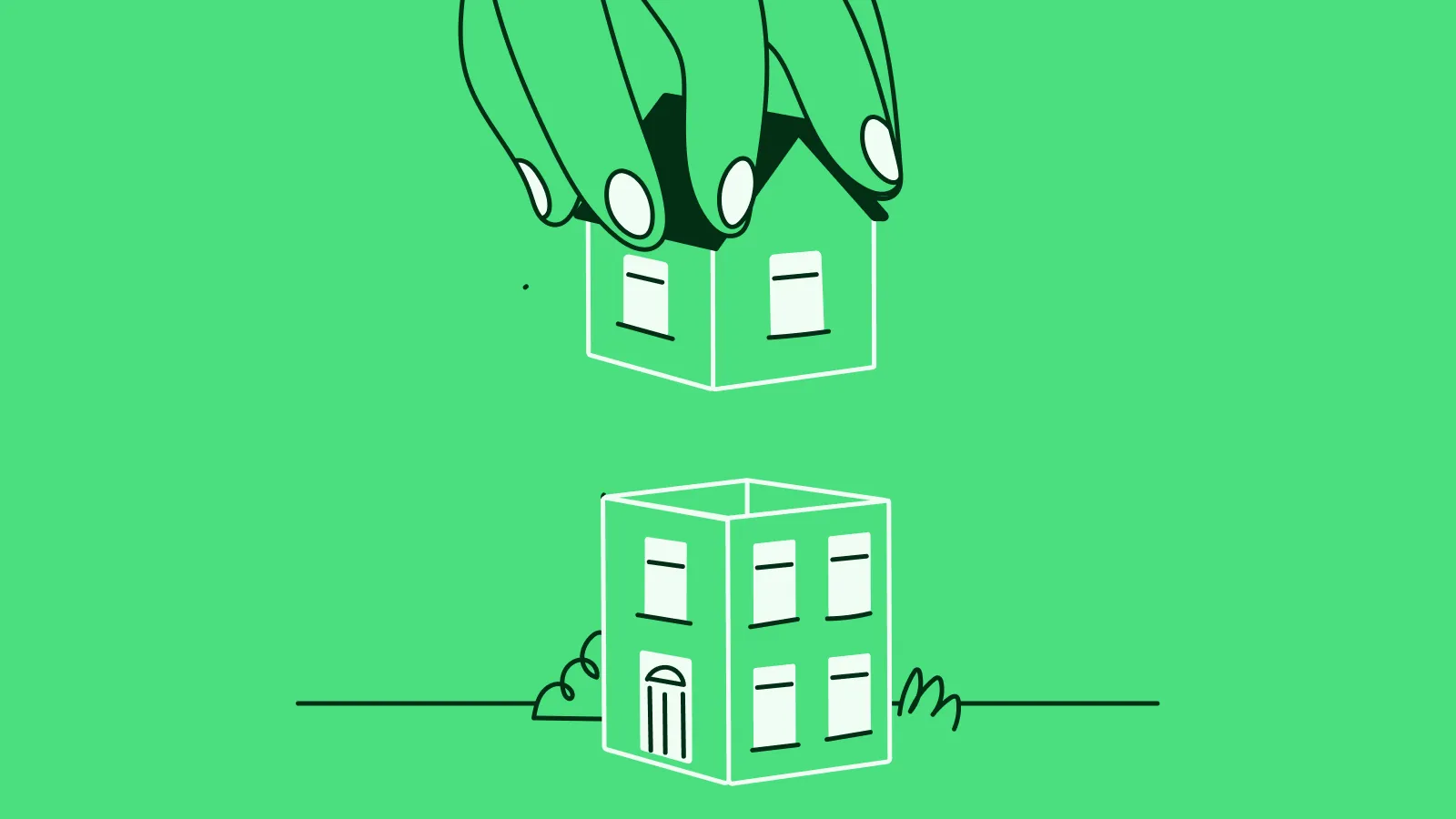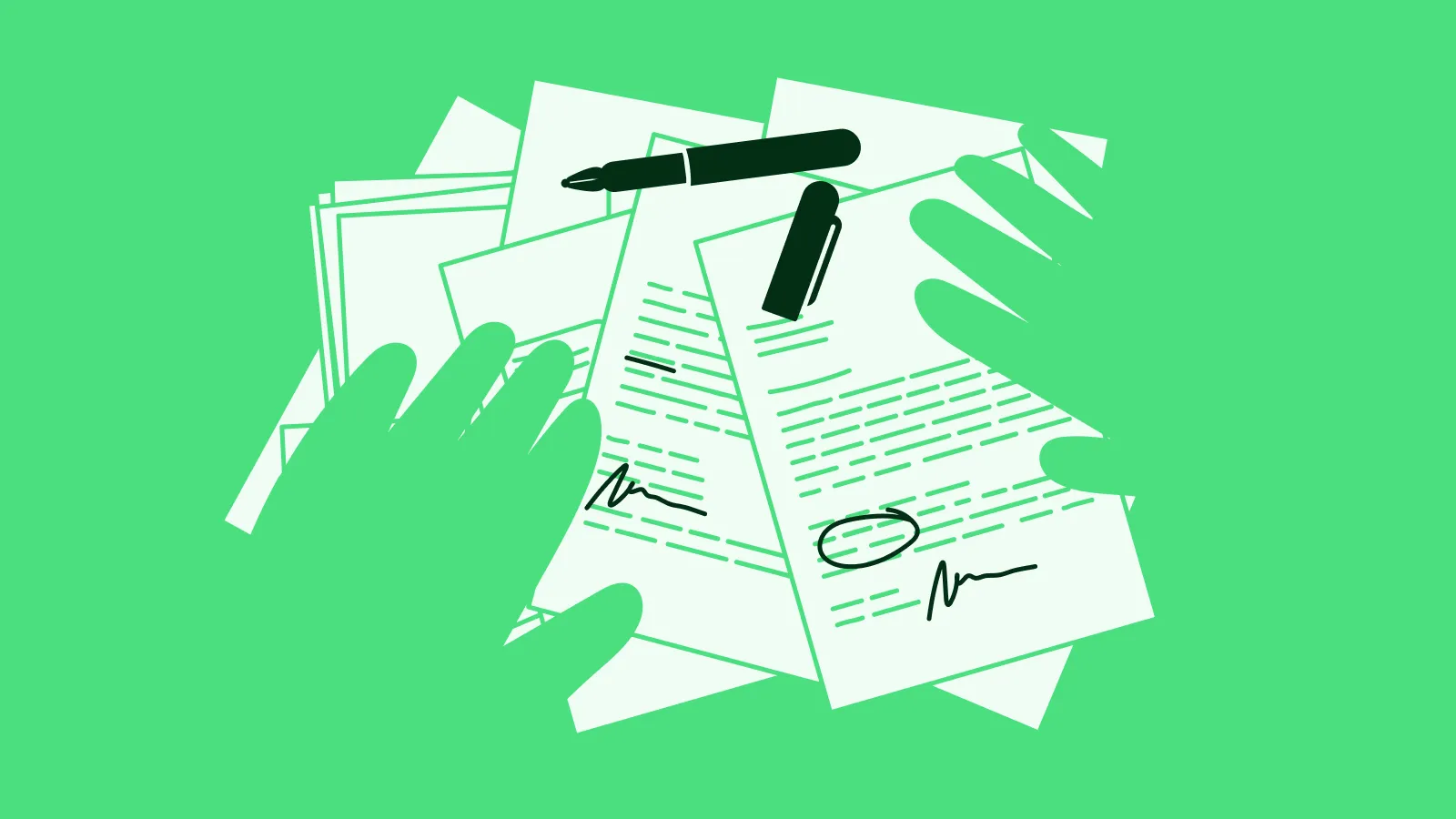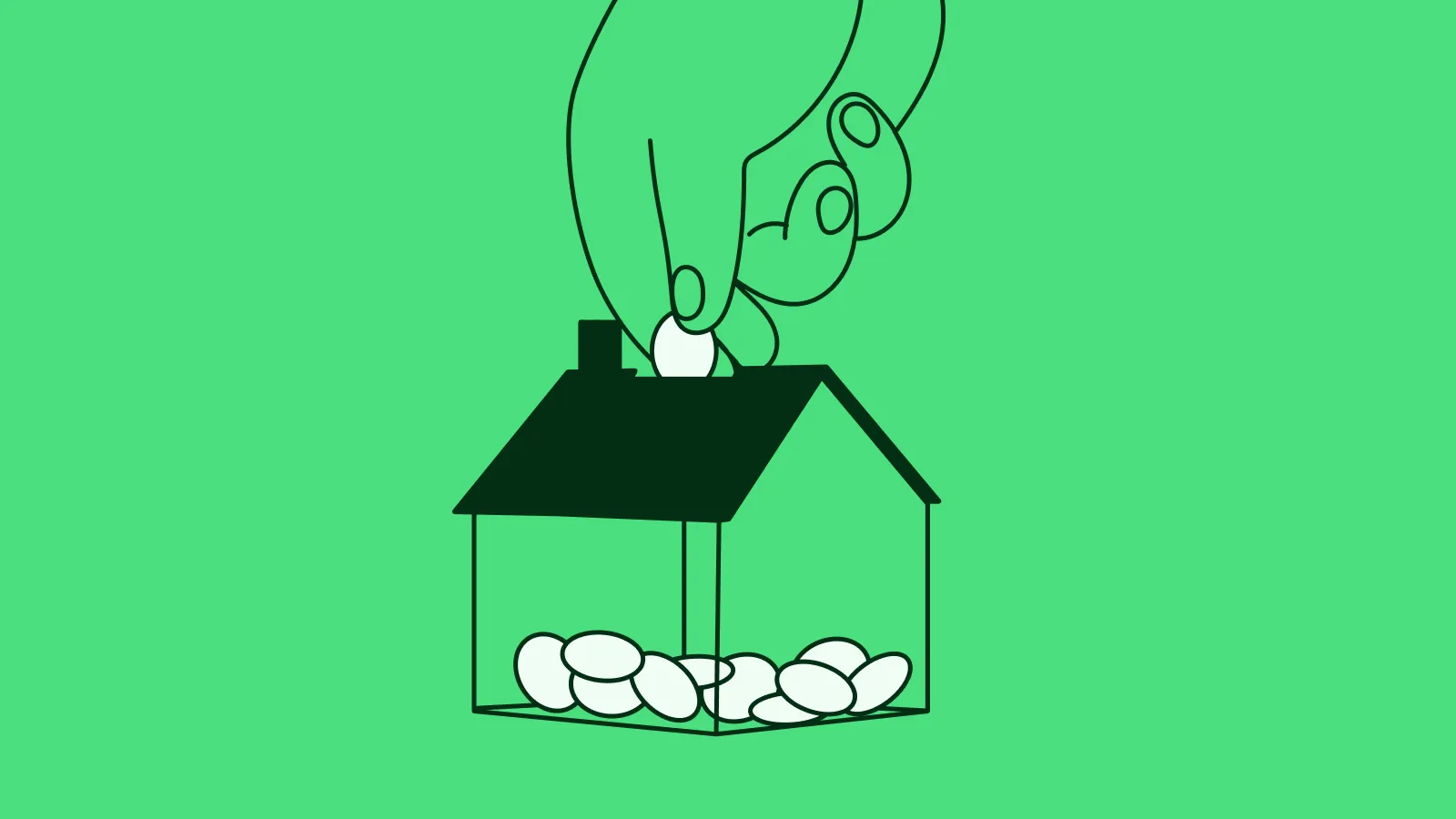How to Calculate Your Mortgage Repayments
Find out how much your mortgage will cost and why the choices you make can affect your monthly repayments, so you can budget with confidence.
Your home may be repossessed if you do not keep up repayments on your mortgage.
Exclusive broker partner to

Author: Michael Whitehead, Head of Content
Reviewer: Paul Coss, Haysto Co-Founder and Chief Customer Officer
Updated: Aug 22 2025 7 mins
Buying a home is a big deal, and one of the first questions on your mind is probably, "How much will my mortgage repayments actually be?” Getting your head around that number is the first step to feeling in control of your homeownership journey.
We’ve broken down the factors that affect your monthly mortgage payments, from interest rates to loan amounts, giving you the clarity you need to budget like a pro.
How Are Mortgage Repayments Calculated?
At its core, calculating your mortgage repayment involves working out how to repay the amount you’ve borrowed (the capital) plus the interest the lender charges, all within a set timeframe (the mortgage term).
Almost all standard residential mortgages use the capital and repayment method, where your payments are calculated to gradually pay off the loan amount while also covering the interest. This means that in the early years, a larger portion of your payment goes towards interest, while later on, more of it is applied towards paying off the capital.
You’re not expected to work all this out by yourself with a pen and some paper; we’ve made it much simpler with our smart mortgage repayment calculator below. Just type in some details for the mortgage you might need, and it’ll give you an idea of what your repayments could be in seconds.
Mortgage Type
With a repayment mortgage you repay all the capital and interest during the term. For interest-only, you only repay the interest amount each month and the capital is repaid in full at the end of the term.Your monthly repayment:
Total amount repayable:
Total interest payable:
Speak with one of our experts today to learn more about your options.
Get Started NowThis calculator provides an estimate of your monthly mortgage repayments based on the information you have entered. The figures are for illustrative purposes only, your actual payments may differ, and this does not constitute a mortgage offer.
Your home may be repossessed if you do not keep up repayments on your mortgage.
What Can Affect How Much Your Mortgage Repayments Will Be?
When calculating your mortgage repayments, three main factors will have a big impact on the final number:
The loan amount. This is the amount of money you need to borrow after your deposit has been deducted. The bigger the loan, the higher your monthly repayment.
The interest rate. This is the percentage rate the lender charges you for your mortgage. A higher interest rate means a bigger monthly payment.
The mortgage term. This is the number of years it takes to pay back the mortgage. A longer term will result in lower monthly payments, but you'll pay more interest overall.
To give you a clearer idea of how these factors work in tandem, take a look at the table below. It shows the difference in monthly repayments on a 25-year repayment mortgage based on different interest rates and loan amounts.
Interest Rate | £100,000 | £150,000 | £200,000 | £250,000 |
|---|---|---|---|---|
2% | £424 | £636 | £848 | £1,061 |
3% | £474 | £711 | £948 | £1,185 |
4% | £528 | £792 | £1,056 | £1,320 |
4.5%* | £556 | £834 | £1,112 | £1,390 |
5% | £585 | £878 | £1,170 | £1,463 |
*This line represents the most realistic repayments, based on current interest rates (as of August 2025). The figures in the table above are for illustrative purposes only.
What Affects How Much Your Mortgage Interest Rate Will Be?
It’s not just the Bank of England’s base rate that affects your interest rate. Lenders will also consider a few other factors to determine the rate you’ll be offered. They’re basically looking to see how much of a risk they could be taking by lending you the money. The lower the risk, the better the rate they’ll offer you.
The size of your mortgage deposit. The more money you put down up front, the less you need to borrow, which means less risk for the lender. As a result, you’ll typically have access to a wider range of mortgage deals, usually with the most competitive interest rates.
Your credit history. Lenders will check your credit report for any red flags, such as missed payments, defaults, or County Court Judgments (CCJs). A clean credit record will help you secure a lower rate, whereas having adverse credit could lead to higher rates.
The loan-to-value (LTV). Your LTV is the amount you’re borrowing as a percentage of the property’s value. The higher your deposit, the lower your LTV. A 90% LTV, for instance, means you’ve put down a 10% deposit. A lower LTV shows a lender that you’re less likely to fall into negative equity (where the loan is worth more than the home), which makes you less of a risk.
What Are Mortgage Repayments Made up Of?
All mortgage repayments consist of two components: the capital and the interest. The capital is the actual money you’ve borrowed, and the interest is the fee the lender charges you for borrowing it.
There are two main ways you can choose to pay back your mortgage:
Capital and Repayment Mortgage: With this option, your monthly payment covers both the interest and a portion of the capital. This means that with every payment you make, you're chipping away at the loan, and by the end of the mortgage term, as long as all your payments are up to date, your home will be all yours. This is the most common type of residential mortgage.
Interest-Only Mortgage: As the name suggests, your monthly payments only cover the interest. The capital amount you originally borrowed remains the same. At the end of the mortgage term, you’ll need a separate plan to pay off the loan in a single lump sum. This could be from savings or the sale of an investment property. This option is popular for buy-to-let mortgages and can result in much lower monthly payments, but you must have a clear strategy for paying off the loan at the end of the term.
To find out more about these repayment options, take a look at our guide: Interest Only or Capital Repayment?
How Does Your Mortgage Deal Affect the Interest Rate?
The type of mortgage deal you go for could also have a big impact on your monthly repayments. The main choice you’ll need to make is whether you want a fixed or a variable interest rate.
Fixed-Rate Mortgage: Your interest rate is locked in for a set period, typically 2, 5, or 10 years. This means your payments will remain the same, regardless of what happens to interest rates in the broader market. This gives you stability and makes budgeting easier, but it also means you won’t benefit if interest rates drop.
Variable-Rate Mortgage: Your interest rate can go up or down. A tracker mortgage, for example, follows the Bank of England’s base rate. If the base rate rises, your payments will increase. If it falls, your payments will decrease. This offers the potential for savings but comes with a higher level of risk.
How Long Can You Get a Mortgage For?
The standard mortgage term in the UK is 25 years. But nowadays, you can choose a shorter or longer term to fit your needs. Some lenders offer mortgages for as long as 45 years.
While a longer term can make your monthly payments much more affordable, it also means you'll pay back a lot more interest overall. On the flip side, a shorter term will have higher monthly payments but will save you more in interest and mean you own your home a lot sooner.
Can You Overpay on Your Mortgage?
Yes, absolutely. Most mortgage deals allow you to make overpayments of up to 10% of your remaining mortgage balance each year without incurring a penalty (usually fixed-rate deals, whereas some tracker and variable-rate mortgages don’t have any limits). Overpaying is a smart move if you want to reduce your mortgage term and pay less interest overall.
If your mortgage balance is £200,000, for example, you could pay up to £20,000 per year (including your regular repayments) without being charged any additional fees. You may not be able to overpay up to this limit, but even a few extra payments here and there can make a significant contribution to completing your mortgage earlier than the original term.
Want to see how this could work out for your current mortgage? Just type in some basic details into our mortgage overpayment calculator and see the results in seconds.
Remaining Term
The number of years & months left on the term of your current mortgage.
Potential interest saving:
Potential term reduction:
Your new monthly payment:
Speak with one of our experts today to learn more about your options.
Get Started NowThis calculator provides an estimate of how much interest you could save and/or reduce your existing mortgage term by making overpayments based on the information you have entered. The figures are for illustrative purposes only; the actual amount by which your mortgage debt and/or term could be reduced may differ. Before proceeding with any overpayments, seek advice from a qualified Mortgage Broker.
Your home may be repossessed if you do not keep up repayments on your mortgage.
What Happens if You Miss a Mortgage Repayment?
If you miss a mortgage repayment, the first step is to contact your lender. Communication is key here. Lenders have processes in place to help, but ignoring the problem will only make it worse.
Missing a payment can lead to a range of consequences, from late payment fees to a negative mark on your credit report, which could impact your ability to get other credit in the future. In the worst-case scenario, if you continue to miss payments, the lender could start repossession proceedings, which means you could lose your home.
If you ever think you might miss a payment, the best advice is to speak with your lender as soon as possible. They could offer a temporary payment holiday or another solution to assist you.
Start Your Mortgage Journey with Picnic
Getting a clearer picture of what your mortgage repayments could be is a massive step towards feeling in control of your journey. It’s not just about finding the right number; it’s about understanding the factors that affect it, from your deposit and credit score to the type of deal you choose.
We're here to help you get the best deal for your situation. Whether you’re a first-time buyer or moving to a new home, we’ll help you understand what you can borrow and what your payments could be, so you can move forward with confidence.
Just make an enquiry, and a member of our mortgage team will be in touch to get the ball rolling.
Related Pages
Porting Your Mortgage

The Picnic Guide To Buying a Home

How Conveyancing Works

How Stamp Duty Works

Speak to One of Our Experts
First or next move, remortgaging or investing - get clear advice from our award-winning experts to help you find the right mortgage.
Your home may be repossessed if you do not keep up repayments on your mortgage.